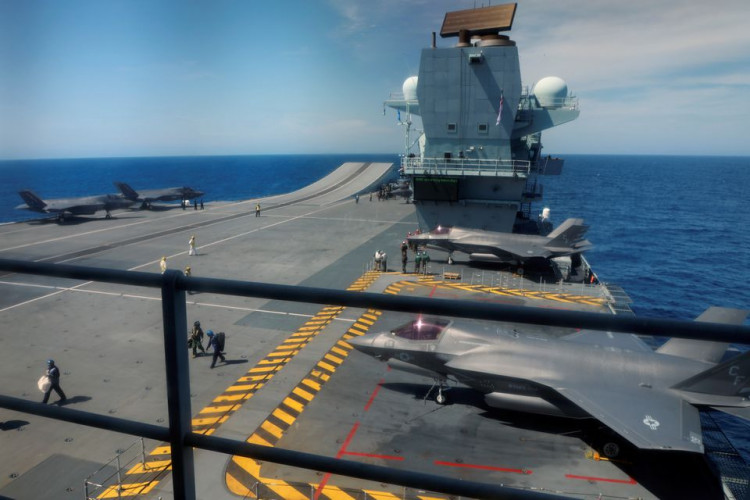In a significant escalation of military involvement in Yemen, U.S. forces conducted another airstrike early Saturday on a Houthi-controlled radar site. This operation, executed by the USS Carney, a destroyer, involved Tomahawk missiles and was part of a broader response to the Houthi rebels' continuous assault on commercial shipping in the Red Sea.
The airstrike follows a series of coordinated strikes by the U.S. and U.K. on numerous Houthi targets across Yemen. According to Lt. Gen. Douglas A. Sims II, these operations used over 150 precision-guided munitions to target nearly 30 locations, including "command and control nodes, munitions depots, launching systems, production facilities, and air defense radar systems." The Houthi military spokesperson reported casualties, with at least five people killed and six wounded in Friday's attacks.
These military actions have intensified the conflict that has embroiled the region since the outbreak of hostilities between Hamas and Israel. The Houthis, an Iran-aligned group, have vowed to continue targeting commercial ships in the Red Sea, a crucial global trade route. In a defiant response to the latest strike, a Houthi spokesperson promised a "firm, strong and effective response."
President Biden, while on a business tour in Allentown, Pennsylvania, indicated a firm stance against Houthi retaliation. "We will make sure to respond to the Houthis as they continue this outrageous behavior along with our allies," he stated.
The ongoing conflict and the U.S. strikes have raised concerns about a broader regional war. This crisis has led to a significant disruption in global shipping, with many large companies opting to avoid the Suez Canal, instead taking a longer route around Africa. This diversion is expected to impact global supply chains and potentially fuel inflation.
The U.S.'s strategy in Yemen has been part of a broader effort to stabilize relations with China and prevent escalation into a wider conflict. In line with this policy, the Biden administration will send an unofficial delegation to Taipei following the election, continuing a longstanding U.S. practice.
The conflict has also had significant implications for global oil prices, with Brent crude oil experiencing a sharp rise following the recent strikes. The Houthi attacks have forced rerouting of commercial ships, adding to concerns about inflation and further supply chain disruptions.
The situation in Yemen remains a complex geopolitical challenge, with the U.S. seeking to balance its strategic interests in the region against the backdrop of an increasingly volatile conflict. As tensions escalate, the international community watches closely, aware of the potential for further destabilization in an already tumultuous region.




